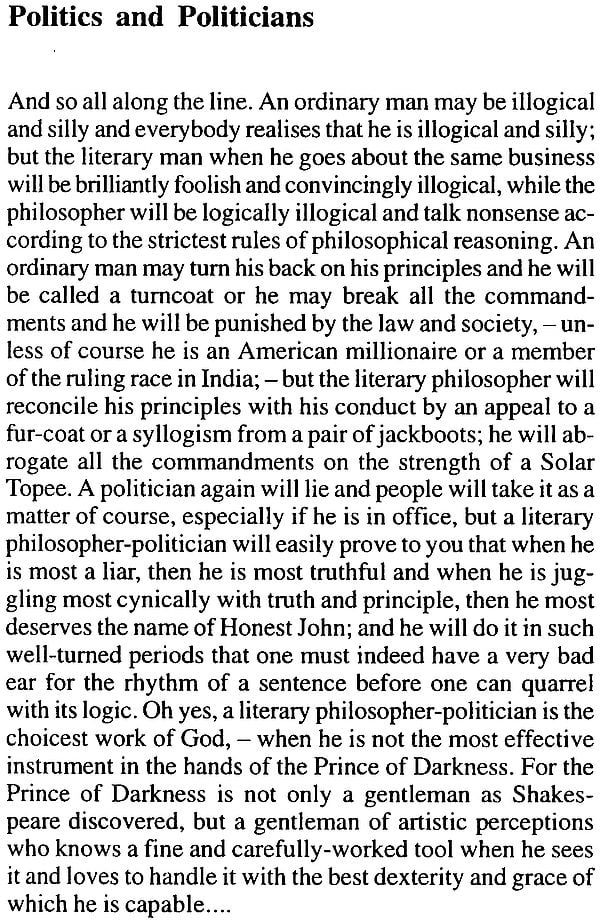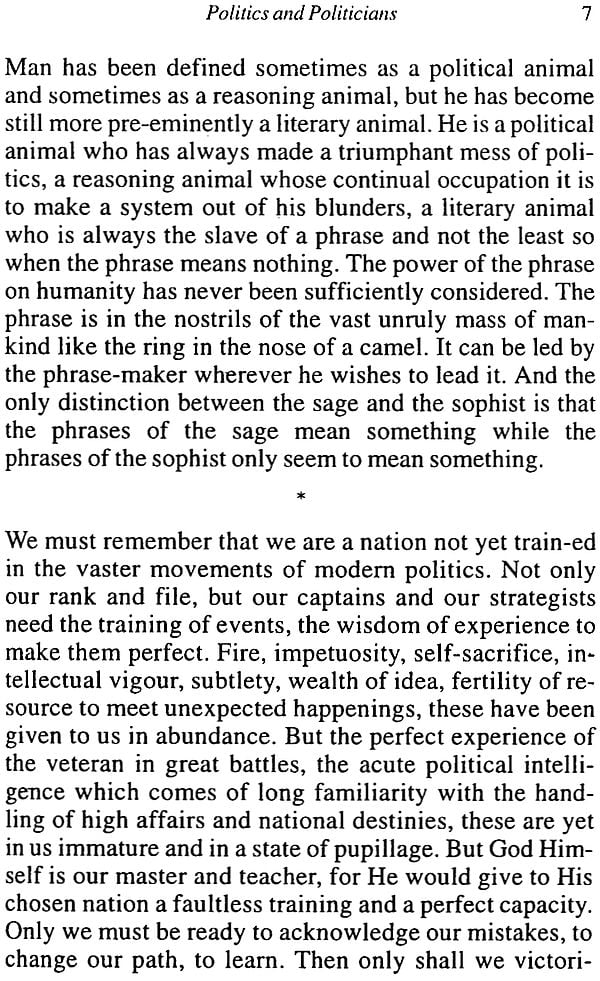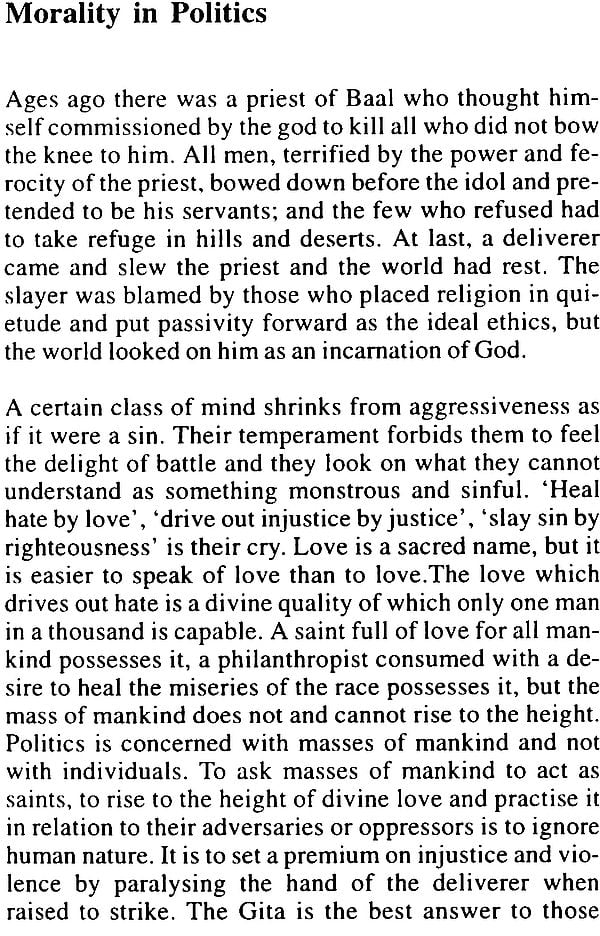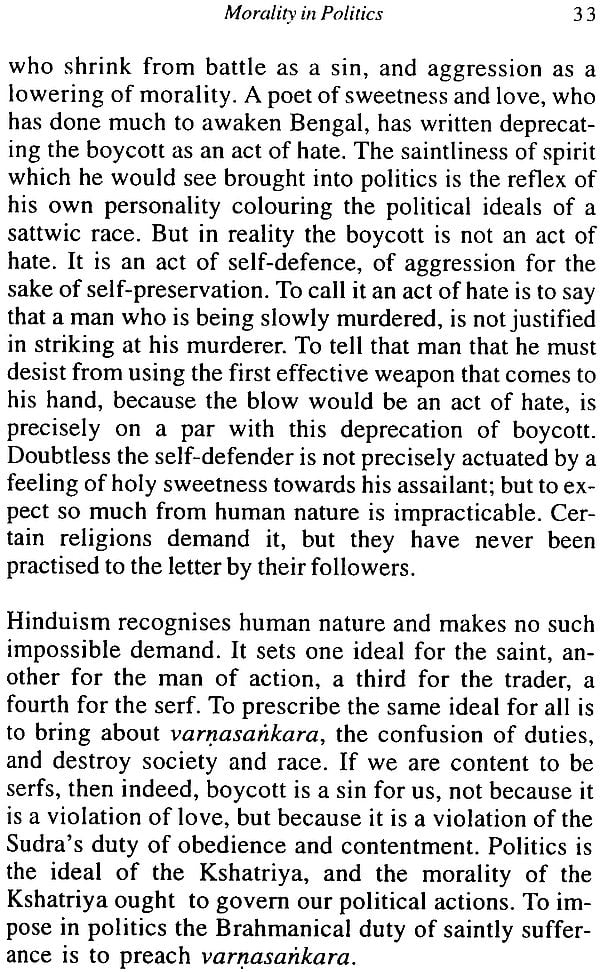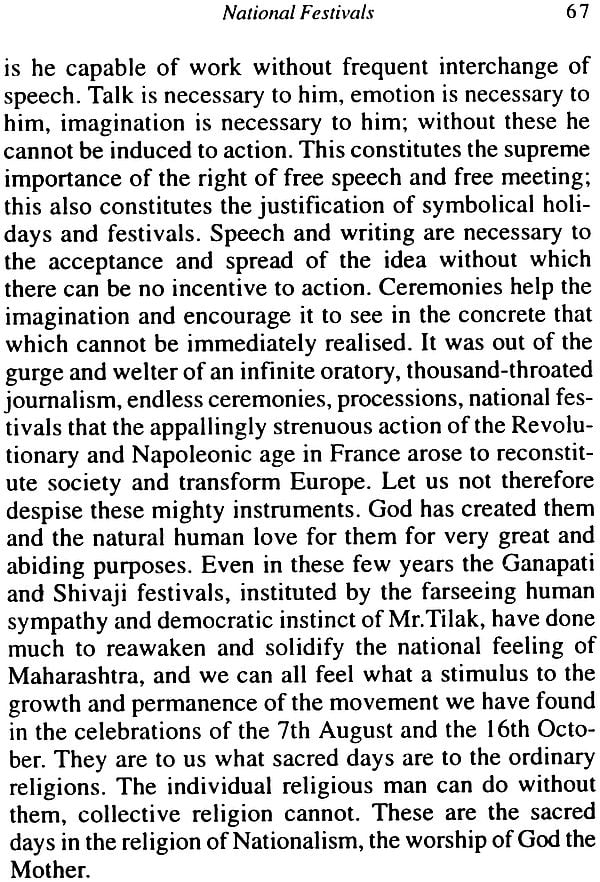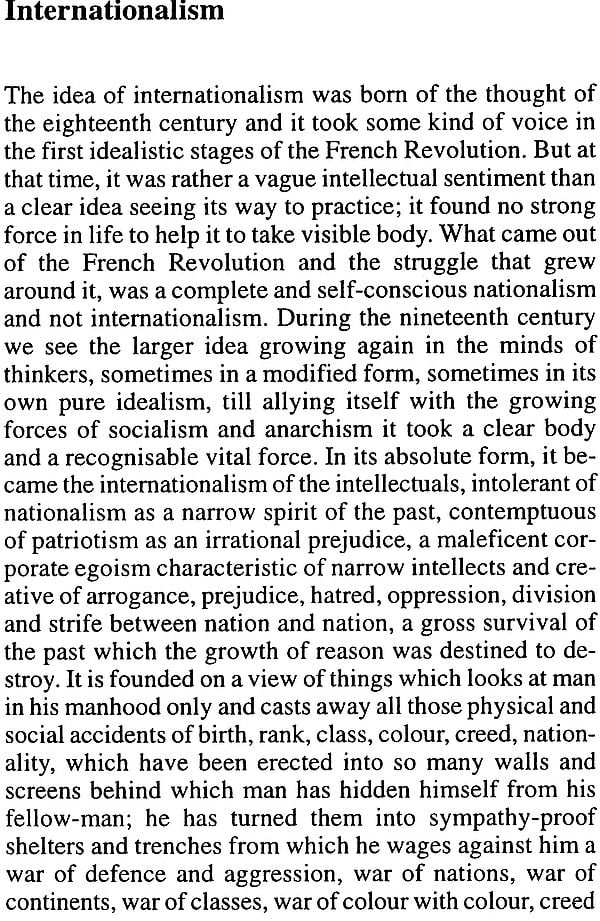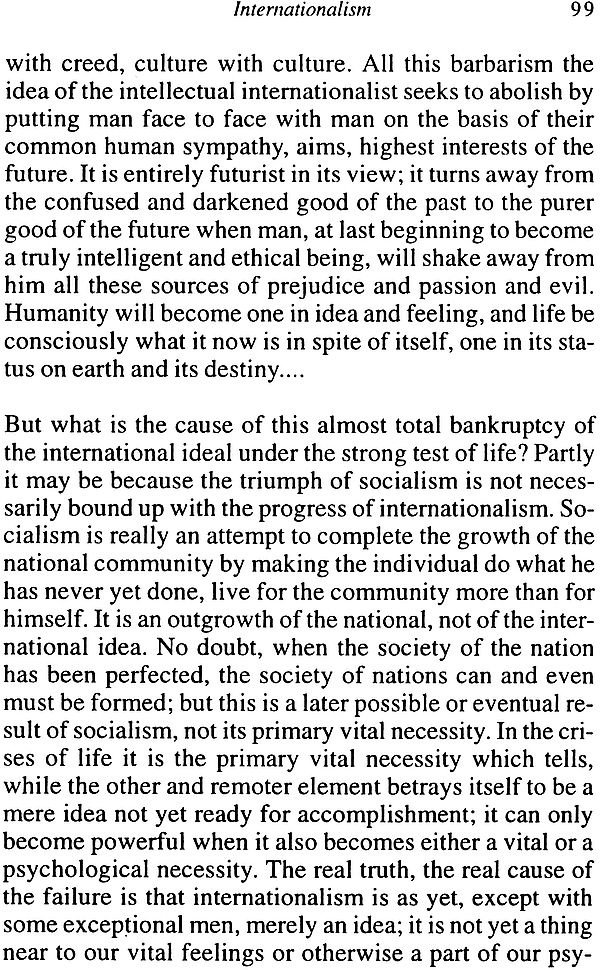
A Journey from Politics to Yoga (From the Early Political Writings of Sri Aurobindo)
Book Specification
| Item Code: | NAM861 |
| Author: | G. P. Gupta |
| Publisher: | Sri Aurobindo Ashram, Pondicherry |
| Language: | English |
| Edition: | 2003 |
| ISBN: | 9788170601906 |
| Pages: | 126 |
| Cover: | Paperback |
| Other Details | 7.5 inch X 5.0 inch |
| Weight | 130 gm |
Book Description
This book is a compilation from the writing and the editorials which Sri Aurobindo had written in the Bandemataram and the Karmayogin when he was at the summit of active politics between 1906 and 1910. His writings were considered by the British rules in those days as ‘most dangerous’ but for the people of India these were revelations packed with patriotism and inspiration to attain swaraj for the country. They reveal how even politics can has to be country. They reveal how even politics can and has to be reoriented and imbued with spirituality.
Though written several decades ago, at a particular time in Indian history, they present thoughts which are still very relevant and provide guidelines to present-day politicians and statesmen. Many of these articles appeared as unsigned editorials due to the circumstances prevailing at that time. Hence at some places Sri Aurobindo speaks About himself in the third person.
We hope that this compilation will help in reforming our political system on the lines of Sri Aurobindo’s thought our political system on the lines of Sri Aurobindo’s thought and vision. The editorial comments and introductory sentences have been put in italics.
Does this mean that politics has no morals, no ethics no love and no scruples? Sri Aurobindo, a staunch revolutionary of his time, observes at one place: I have done politics and the most violent kind of revolutionary politics, ghoram karma, and I have supported war and sent men to it, even though politics is not always or often a very clean occupation nor can war be called a spiritual line of action. But Krishna calls upon Arjuna to carry on war of the most terrible kind and by his example encourage men to do every kind of human work, sarvakarmani. Do you contend that Krishna was an unspiritual man and that his advice to Arjuna was mistake or wrong in principle? All depends on the spirit in which a thing is done, the principles on which it is built and the use to use is done, the principles on which it is built and the use to which it is turned.
India today is faced with a war of nerves in politics and personalities, a clash of reactions and repartees and aspersion and a regression of ideas, thoughts and values. The immaturity of politicians is eminently visible in their behavior all over the country. It is worthwhile, therefore, to reproduce these words of Sri Aurobindo, written in the beginning of the 20th century, and yet, how appropriate and instructive are these at the beginning of the 21st century.
| Introduction | 1 |
| A Seer's Dream of Mother India | 2 |
| Politics and Politicians | 6 |
| Politics is not Exclusive | 11 |
| The Ideals of Politics | 17 |
| Awakening Political Consciousness | 20 |
| New Politics: Passive Resistance | 27 |
| Morality in Politics | 32 |
| The Politics of Boycott | 38 |
| The Ideals of Self Rule | 43 |
| Unity, Diversity and Uniformity in Politics | 46 |
| Social Reform and Politics | 50 |
| State: A Custodian of People's Welfare? | 52 |
| Small is Endurable | 58 |
| The Nucleus of Socialistic Democracy | 62 |
| National Festivals | 66 |
| The Diversity of Languages | 68 |
| Spirituality and Nationalism | 72 |
| The East and the West | 75 |
| House Searches | 79 |
| Asceticism and Enjoyment | 83 |
| Bureaucracy : An Official Freak | 85 |
| The Statesman | 87 |
| The Nationalism: Who? | 88 |
| Swaraj | 91 |
| Internationalism | 98 |
| The Task Ahead | 101 |
| Rebuilding Indian | 107 |
| A Journey from Politics to yoga | 112 |
| References | 119 |
